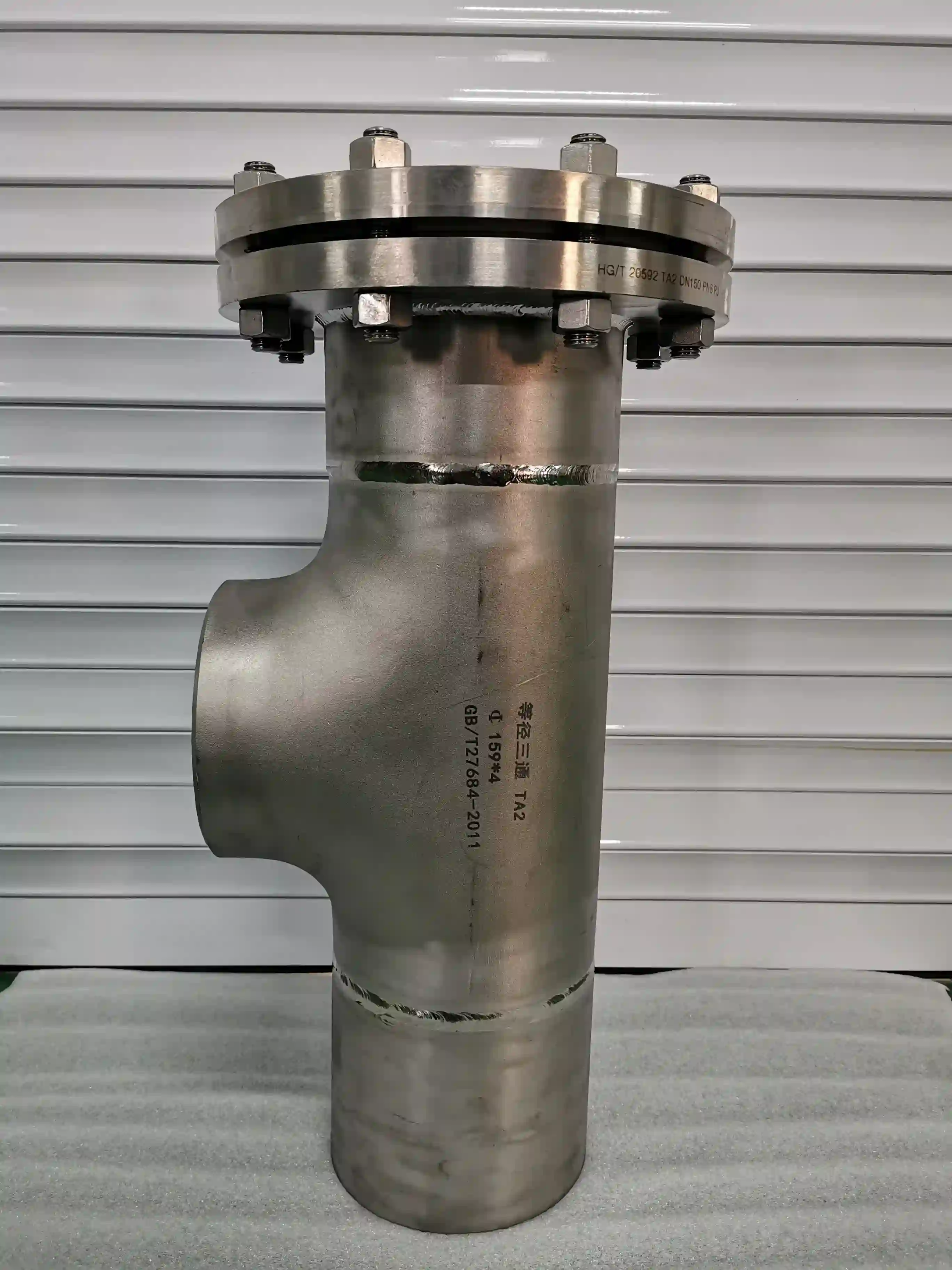- This topic is empty.
-
AuthorPosts
-
2025-05-15 at 6:33 pm #6750
Pressure vessels are essential components in many industries, from oil and gas to pharmaceuticals, where they are used to store and transport fluids or gases under high pressure. When it comes to selecting materials for pressure vessels, titanium stands out due to its unique combination of strength, lightweight, and corrosion resistance. A titanium pressure vessel is an investment in long-term reliability and performance, offering superior durability in harsh environments. This article Qiwei will delve into the key features of titanium pressure vessels, demonstrating why they are the material of choice in demanding high-pressure applications.
What are Titanium Pressure Vessels?

A pressure vessel is a container designed to hold fluids or gases at pressures significantly higher than the surrounding atmosphere. Pressure vessels are critical in industries where fluids or gases are stored or processed under high pressure, such as chemical manufacturing, oil and gas, power generation, and aerospace. The materials used to construct these vessels must meet strict mechanical, thermal, and environmental performance standards to ensure the safe storage and handling of substances under high pressure. Titanium pressure vessels are designed to withstand extreme conditions, including high pressures, temperatures, and corrosive environments. Titanium, with its excellent strength-to-weight ratio, corrosion resistance, and ability to maintain structural integrity in challenging environments, is an ideal material for these high-demand applications. Titanium pressure vessels are used in applications ranging from the aerospace industry to chemical processing, providing a reliable solution for storing and handling hazardous materials under pressure.
Key Features of Titanium Pressure Vessels
a. Exceptional Corrosion Resistance
One of the primary advantages of titanium pressure vessels is their exceptional corrosion resistance. Titanium is highly resistant to a wide range of corrosive environments, including saltwater, acids, and alkaline substances. This makes titanium pressure vessels ideal for applications in the chemical, pharmaceutical, and marine industries, where vessels are often exposed to corrosive fluids and gases. In many industries, materials like carbon steel or stainless steel can suffer from corrosion over time, especially when exposed to harsh chemicals or extreme conditions. Titanium, however, forms a protective oxide layer on its surface that prevents further degradation. This oxide layer is self-healing, which means that if the surface is damaged, it will naturally reform, ensuring continued protection against corrosion. This corrosion resistance extends the lifespan of titanium pressure vessels and reduces maintenance costs.
b. High Strength-to-Weight Ratio
Titanium's high strength-to-weight ratio is another significant advantage in the design and construction of pressure vessels. Titanium is as strong as steel, yet much lighter, which makes it an attractive option for industries where weight reduction is crucial. In aerospace applications, for example, reducing the weight of pressure vessels is essential to improving fuel efficiency and overall performance. The reduced weight of titanium pressure vessels allows for more efficient handling and transportation, as well as lower operational costs. Titanium pressure vessels provide the structural integrity required to withstand high-pressure conditions without the bulkiness of heavier materials. This is particularly important in industries such as aerospace and automotive manufacturing, where space and weight constraints are critical considerations.
c. Excellent Thermal Stability
Titanium pressure vessels are also known for their excellent thermal stability. Titanium maintains its strength and integrity at both high and low temperatures, making it suitable for use in a wide range of temperature conditions. Unlike other metals that may weaken or lose their structural integrity at elevated temperatures, titanium retains its properties even in extreme heat. This thermal stability makes titanium pressure vessels ideal for applications in high-temperature environments, such as power generation, chemical processing, and the aerospace industry. Titanium's ability to withstand thermal stress without deforming or failing ensures that pressure vessels remain safe and functional under extreme operational conditions.
d. Biocompatibility
For certain applications, particularly in the medical and pharmaceutical industries, biocompatibility is a critical factor. Titanium is known for its biocompatibility, meaning it is non-toxic and will not cause an adverse reaction when in contact with living tissues. This makes titanium pressure vessels an excellent choice for storing or transporting medical gases and other substances that need to be kept sterile. Titanium's biocompatibility is also beneficial in industries such as food processing, where it is essential to avoid contamination. The material's non-reactive properties ensure that substances stored in titanium pressure vessels remain pure and uncontaminated, thus maintaining product quality.
Titanium pressure vessels offer unmatched strength, durability, and safety for high-pressure applications. With their excellent corrosion resistance, high strength-to-weight ratio, thermal stability, and biocompatibility, titanium pressure vessels are the material of choice for industries that require reliable and long-lasting pressure storage solutions. By investing in titanium pressure vessels, industries can reduce maintenance costs, improve safety, and enhance operational efficiency, making titanium an invaluable asset in high-pressure environments.
https://www.tnztn.com/Titanium-Pressure-Vessel
http://www.tnztn.com
Wuxi Qiwei Nonferrous Technology Co., Ltd. -
AuthorPosts
- You must be logged in to reply to this topic.